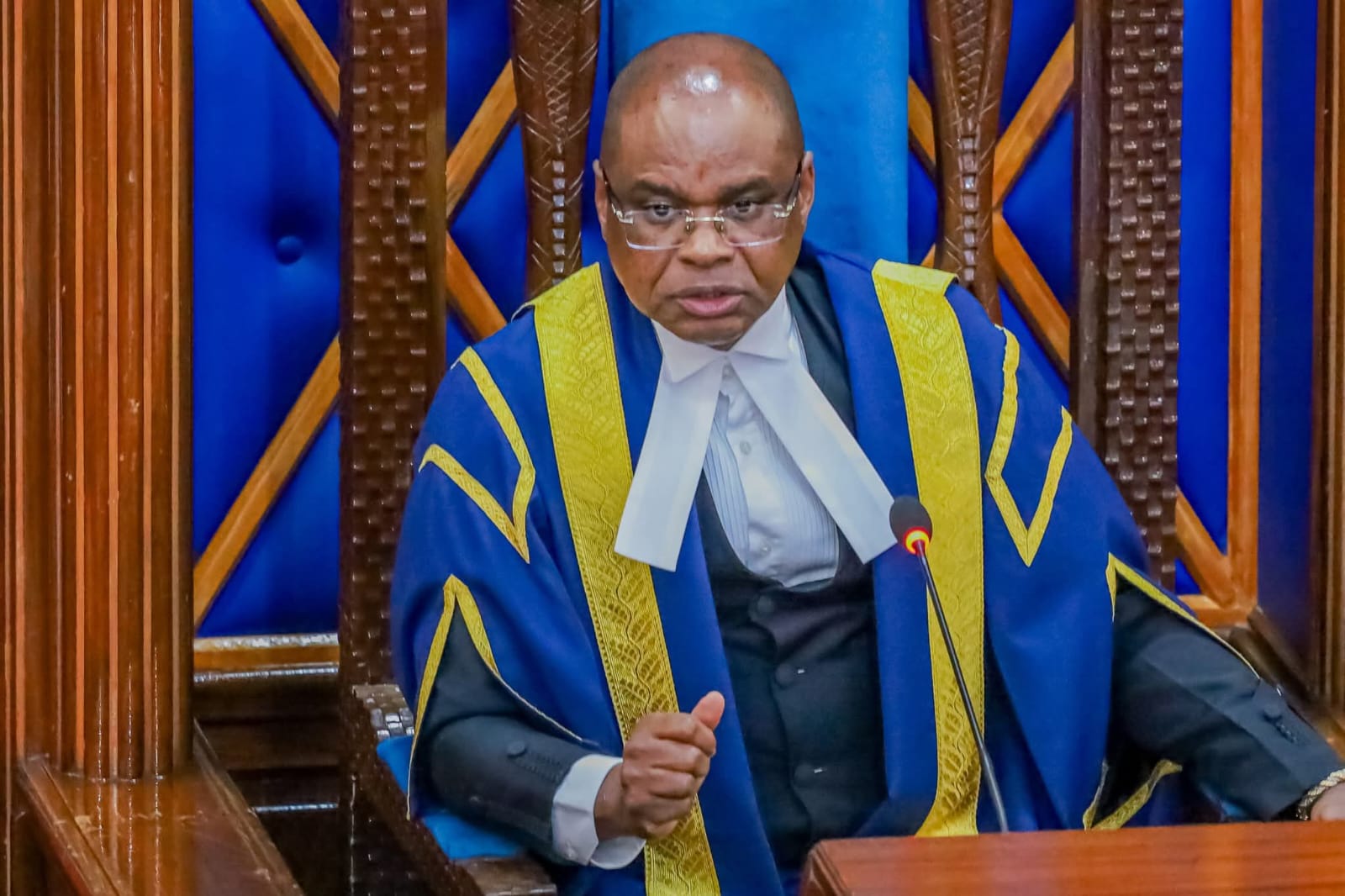Senators to decide hearing method in Kericho Governor Mutai impeachment case

Mutai faces accusations of abuse of office, nepotism, irregular and illegal appointments, wrongful dismissal of senior staff, and presiding over misuse of county funds.
Senators will today decide the procedure for hearing the impeachment case against Kericho Governor Erick Mutai, in a highly charged process already clouded by bribery claims.
Speaker Amason Kingi has convened a special sitting of the House to consider the charges brought against the county boss, marking the second attempt to remove him from office within a year.
The session will determine whether the case proceeds before the entire House or through an 11-member special committee.
“I have today, through a Gazette notice, invited senators for a special sitting on Wednesday, August 20, 2025, to hear the charges against Honourable Eric Kipkoech Mutai, Governor of Kericho County,” reads the notice.
The announcement followed formal communication from Kericho County Assembly Speaker Patrick Mutai, received on Monday, after 33 out of 47 MCAs voted to oust the governor on August 15.
The motion was tabled by Sigowet Ward Representative Kiprotich Rogony.
Mutai faces accusations of abuse of office, nepotism, irregular and illegal appointments, wrongful dismissal of senior staff, and presiding over misuse of county funds.
The charges also cite inflated procurement, double payments to contractors, and violations of the Public Finance Management Act, the Constitution and the County Governments Act.
Senate Majority Leader Aaron Cheruiyot is expected to move a motion seeking the establishment of the special committee.
If supported by a majority, the governor’s case will be investigated through the committee. Should senators reject this route, the matter will be handled in plenary, exposing Mutai to a full impeachment trial.
The governor previously survived impeachment on October 2, 2024, when 31 MCAs voted to remove him, but the Senate threw out the resolution on grounds that the county assembly had failed to meet the two-thirds threshold.
This time, the assembly surpassed the requirement following a tense day-long sitting, despite Mutai’s failed bid to persuade MCAs to back down.
Mutai’s allies, however, have challenged the vote, with 18 MCAs petitioning against the electronic system used, alleging it was pre-programmed to skew results.
They have also written to the Directorate of Criminal Investigations (DCI) demanding a probe into what they termed as the “use of unauthorised internet-based digital voting system during assembly proceedings…”
At the heart of the impeachment charges are claims that the county inflated the cost of goods and services by up to 1,000 percent.
Records show payments of Sh85.7 million to 46 companies for services and supplies not delivered.
Deputy Governor Fred Kirui, who blew the whistle on the matter, reported to the Ethics and Anti-Corruption Commission, DCI, Senate and Auditor-General, citing questionable transactions such as the purchase of tissue paper at Sh2,700 each against a market average of Sh25, and hand towels at Sh3,600 against Sh300.
The governor has dismissed the claims, arguing they were misrepresented.
His lead lawyer, Katwa Kigen, told the assembly last week that the amounts quoted were not for single items.
“We wish to clarify that the Sh2,700 for tissue papers supplied was not for single items but 40 bales supplied of 40 pieces each,” said Kigen, explaining that each tissue cost Sh67.50.
On the hand towels, he added: “The quoted price of Sh3,600 is for five dozens of hand towels supplied and not per unit as was claimed.”
Rogany further alleged that the governor presided over skewed distribution of donor-funded projects, favouring six wards out of 30, contrary to the law and Constitution.
Mutai has maintained that the issues raised are criminal rather than political, adding that the EACC and DCI were already handling the matters but were yet to release their findings.
